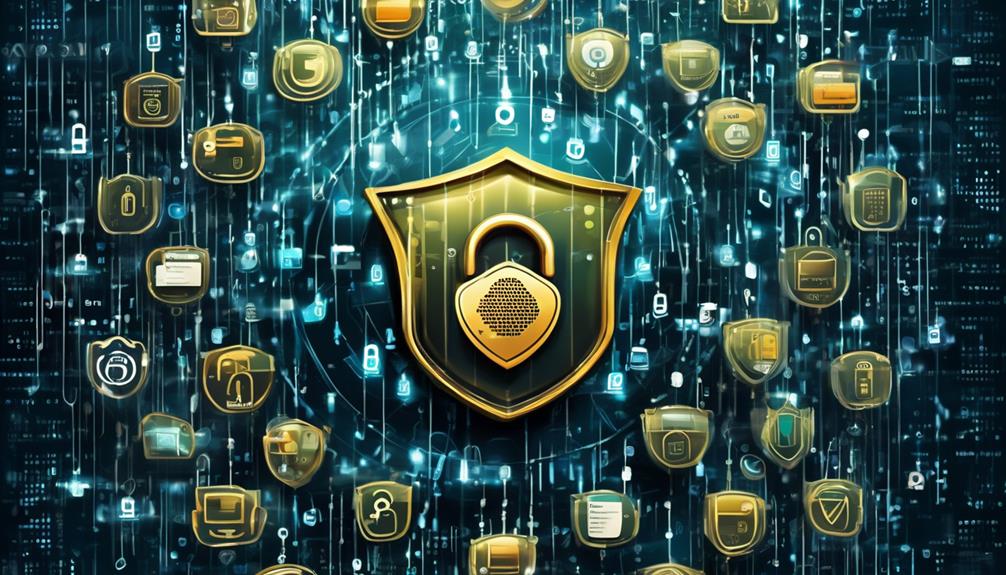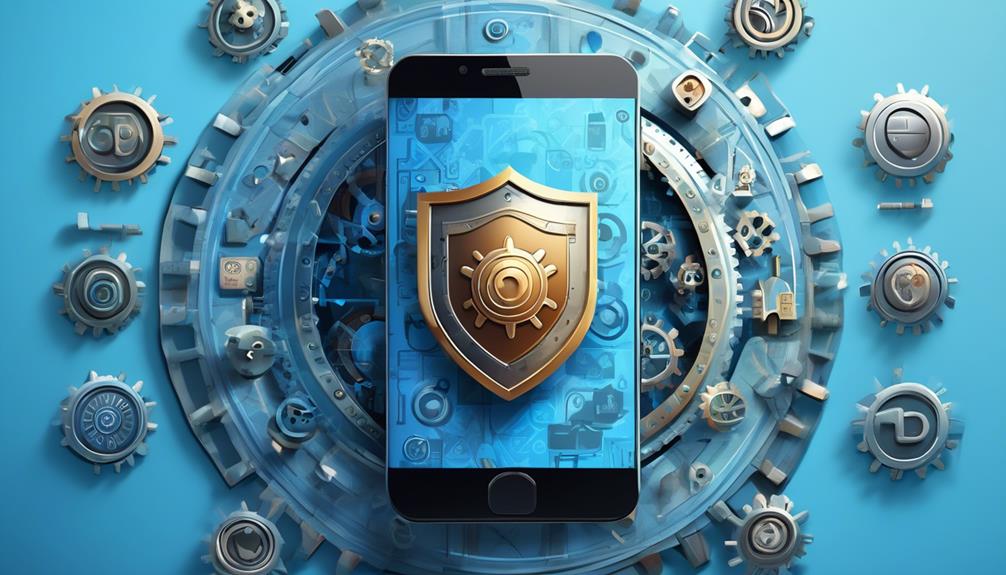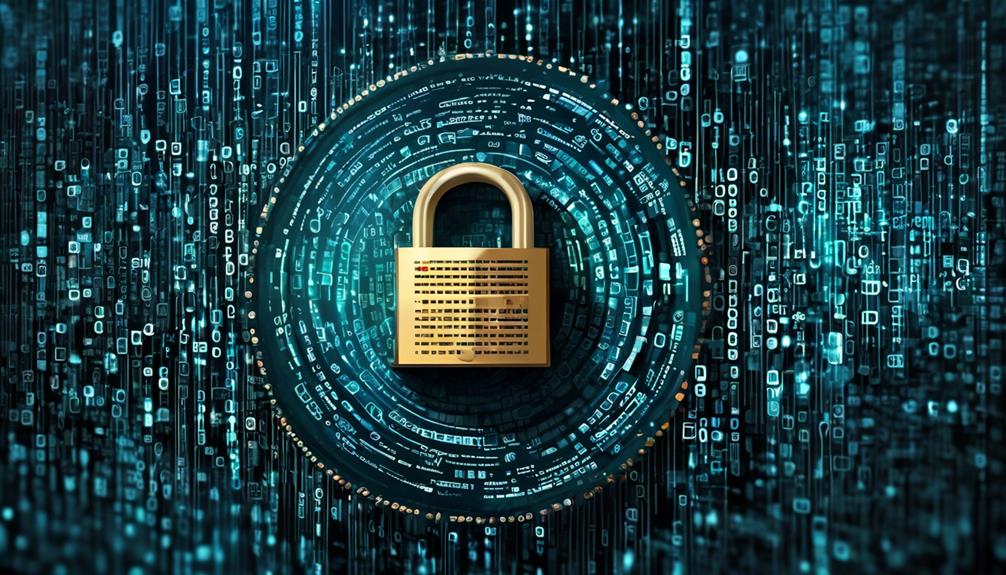In today's world, sharing is commonplace; however, learning to conceal is vital. People engage in digital conversations daily. Meanwhile, an unseen privacy threat looms ominously. This threat is often overlooked until harm occurs. Individuals share with intended recipients, yet they may also share with unseen eavesdroppers. This happens due to weak security or advanced cyber threats. Understanding available privacy tools is crucial for protection.
One should choose secure, encrypted chat applications. Additionally, it is important to identify phishing schemes. By doing so, they fortify their digital communications. Still, the question lingers: Is their protection sufficient? Or are there hidden weaknesses to be found? To keep personal conversations private, one must remain alert and knowledgeable. They must also adapt to the changing digital security landscape.
Understanding Secure Messaging

Secure messaging is vital for protecting private conversations online. It employs encryption, ensuring content access is limited to intended recipients. In today's digital age, this practice is crucial. Without it, our communications could be easily intercepted and misused.
By integrating message validation protocols, secure messaging services enhance authenticity. These protocols verify information sources, effectively blocking imposters. Anonymity features add another layer of privacy. They allow users to communicate without revealing their identities.
This privacy is essential for discreet personal or professional interactions. The secure messaging community values more than just protected words. They seek a digital environment that respects their need for private space.
Thus, secure messaging is not merely a tool. It represents a sanctuary for those valuing personal dialogue. It is a digital embrace, assuring users of a privacy-respecting collective. With secure messaging, this community's commitment to privacy grows stronger.
Everyone, they believe, deserves a conversation space free from unwarranted scrutiny. Secure messaging reinforces this belief, advocating confidentiality and trust.
Choosing Encrypted Chat Apps
When choosing encrypted chat apps, individuals need to critically evaluate them. Features like end-to-end encryption are crucial. User privacy policies must be thoroughly checked. The app's security reputation is also key. Without consistent safeguards, one's communications might be vulnerable. They could be exposed within their digital tribe.
Users desire a strong sense of belonging. Ensuring conversations remain private strengthens this bond. One often overlooked aspect is message lifespan control. Setting expiration times provides an additional security layer. It ensures sensitive information does not remain forever.
Moreover, anonymity features act as a privacy cornerstone. Permitting communication without revealing personal details offers a sanctuary. In this space, there is no fear of identity exposure. Wearing this digital mask brings many users relief. They can interact candidly within their circles.
In seeking a secure digital haven, app privacy feature analysis is crucial. It's not enough to use any encrypted chat app. The chosen app must align with a need for strict confidentiality. It should support the desire to join a community that values discretion.
Recognizing Phishing Attempts

Phishing attempts often masquerade as legitimate communications, skillfully tricking users into compromising their personal information. These deceptive messages lure individuals with the false comfort of familiarity, only to betray that trust through cleverly crafted scams. It's crucial for community members to be vigilant, scrutinizing every digital missive for signs of fraudulence.
Suspicious links are the harbingers of phishing schemes. An informed user will recognize that these links often lead to imitation websites that harvest login credentials. It's a collective responsibility within the community to verify the authenticity of URLs before clicking. Hovering over a link can reveal its true destination, a discreet yet effective method for unmasking deceit.
Equally telling are unusual requests. Phishing emails may implore you to act swiftly, usually by conveying a sense of urgency or invoking fear. Analytical thinking becomes the armor against such tactics. Whether it's a request for password verification or a plea to update account information, one must approach with skepticism.
Creating Strong Passwords
Creating robust passwords is crucial in our digital era. To protect virtual presence and personal data, strong password hygiene is vital. It's not just about complexity; it involves a strategic approach. This approach ensures digital accounts are secure from unauthorized access.
Firstly, use a mix of characters for complexity. This should include uppercase and lowercase letters, numbers, and special characters. Secondly, avoid predictable information like birthdays or dictionary words. Instead, implement passphrases for better memorability and strength. These passphrases should combine unrelated words.
Moreover, it's wise to update passwords regularly. This is especially true following a security breach of a service. Additionally, consider a reputable password manager for tracking. This tool helps manage multiple strong passwords effectively.
Furthermore, combining strong passwords with two-factor authentication (2FA) boosts security. 2FA introduces an additional protection layer, often needing a code sent to one's mobile device. Alternatively, it might require generation through an authenticator app. By adopting these measures, individuals can shield their digital interactions from cyber threats. This, in turn, promotes a community that treasures privacy and security.
Managing Privacy Settings

Navigating digital privacy, users must meticulously adjust app permissions to protect their data. Consequently, they limit profile visibility, a proactive step to reduce exposure risks. Additionally, when choosing messaging platforms, individuals look for encryption and prioritize privacy features, ensuring their conversations remain confidential.
Adjusting App Permissions
To protect personal data during online chats, users should actively manage app permissions in their device settings. This cautious step not only boosts privacy but also builds trust within communities that prioritize confidentiality and safety. It is essential to conduct frequent app audits and improve understanding of permission settings to keep personal information secure.
- Review permissions: Consistently monitor and adjust app permissions, ensuring access is limited to what's necessary.
- Limit location sharing: Turn off location services for apps that do not require real-time tracking.
- Camera and microphone control: Restrict camera and microphone usage to avoid unwanted surveillance.
- Notifications: Fine-tune notification preferences to prevent display of private information on your lock screen.
- Updates and terms: Regularly update yourself on app privacy policy changes.
Limiting Profile Visibility
Users can enhance their online privacy by meticulously adjusting their social media settings. Profile customization is, therefore, a pivotal step. It fosters a sense of belonging while safeguarding one's digital presence. By setting visibility restrictions, individuals assert control over their personal data. They determine who can access their information, photos, and posts.
This deliberate approach ensures personal data is shared only with a chosen community. Consequently, it reinforces the security of one's virtual circle. Regularly reviewing these settings is essential. Platforms often update their privacy features, necessitating vigilance.
An analytical eye towards profile customization protects privacy. Moreover, it nurtures truly meaningful connections. Users can thus engage with their online communities confidently and with ease.
Secure Messaging Selection
Selecting a secure messaging platform is crucial for privacy and confidential communication. Users desire safety, inclusion, and privacy guarantees. Therefore, consider these essential features:
Firstly, end-to-end encryption ensures only sender and receiver read messages. Secondly, data sovereignty complies with local data laws. Thirdly, open-source code invites community scrutiny, building trust in security. Additionally, message destruction allows setting auto-delete timers for messages. Finally, two-factor authentication significantly enhances account security.
In today's world, with permanent digital footprints, these features are vital for privacy-focused individuals and communities.
Safe File Sharing Practices

When sharing files online, it's crucial to adopt secure methods. These methods protect sensitive information from unauthorized access or exposure. Decentralized platforms are increasingly popular for secure sharing. They provide peace of mind, unlike centralized services. Centralized services store data on single-company servers. Decentralized platforms distribute data across many nodes. This distribution reduces the risk of single-point failures and enhances privacy.
Additionally, watermarking documents adds another security layer. It ensures that files carry a unique identifier. Consequently, this makes unauthorized distribution easily traceable. For creative professionals, this technique is especially valuable. It protects intellectual property without hindering collaboration.
However, digital community members must understand their responsibility. Safeguarding privacy isn't solely the platforms' duty. Indeed, it's a collective effort. By choosing platforms wisely and employing strategies like watermarking, individuals can help secure the digital environment. This collective security fosters a sense of belonging. Users can engage confidently, knowing their contributions are protected.
Staying Informed on Scams
While adopting secure file-sharing practices significantly mitigates privacy risks, remaining vigilant about the latest scams is equally critical for digital safety. The digital age has seen an unprecedented rise in sophisticated scams, making fraud awareness and scam education essential for every netizen. It's a community effort to stay one step ahead of the fraudsters.
To ensure one's safety, they should consider these key points:
- Regularly update themselves on common phishing tactics, which often involve fake emails or texts that mimic legitimate organizations.
- Be wary of unsolicited requests for sensitive information, recognizing that reputable companies don't ask for personal details via unsecured channels.
- Double-check the authenticity of websites and apps before downloading or entering personal data, as scammers often create convincing replicas.
- Utilize resources dedicated to fraud awareness, such as government websites or consumer protection groups, which provide valuable scam education.
- Share knowledge about new and emerging scams within their community, creating a network of informed and watchful individuals.
An informed community is a safe community. By taking proactive steps to educate themselves and those around them, individuals can create an environment where everyone has the tools to spot and avoid scams, fostering a sense of belonging and collective security.
Frequently Asked Questions
Can My Employer Legally Monitor My Private Digital Conversations if I Use My Work Device or Network During Off-Hours?
Employers usually implement policies that permit device monitoring. Consequently, they can review your conversations on work devices. Encryption may not ensure privacy on company equipment, even outside normal working hours.
How Do I Ensure the Privacy of My Digital Conversations When Traveling Abroad, Particularly in Countries With Strict Surveillance Laws?
She carefully navigates foreign digital realms. Utilizing Travel VPNs, she maintains privacy. Additionally, Encrypted Messengers aid in secure communication. Her conversations stay hidden, skillfully avoiding surveillance.
Are There Any Physical Devices (Like Hardware Tokens or USB Security Keys) That Can Enhance the Privacy of My Digital Conversations?
Indeed, she discovers that hardware tokens and USB security keys add an additional layer of encryption. Consequently, the privacy of her digital conversations on secure messengers improves. This fosters a sense of belonging within her online community.
How Can I Safely Participate in Anonymous Discussions or Whistleblowing Without Compromising My Digital Privacy?
She wears a digital cloak and uses secure platforms, turning to encrypted messaging to share secrets. Consequently, in this protected space, she discovers camaraderie. Her anonymity serves as a defense, shielding her from the world's intrusive gaze.
What Are the Potential Psychological Effects of Constantly Worrying About Digital Privacy, and How Can One Cope With This Stress While Still Staying Secure Online?
Frequently, individuals experience anxiety which can weaken mental resilience. In order to cope, they might learn anxiety management strategies. Additionally, maintaining secure online practices is vital. Doing so helps foster a feeling of inclusion in the digital world, reducing unending stress.
Conclusion
In the realm of digital communication, privacy invasion is a risk. Consequently, strong passwords are essential for protection. Additionally, using encrypted platforms helps maintain private conversations. Individuals must remain vigilant against phishing tactics. Moreover, customizing privacy settings is crucial for data security. It's like tailoring a bespoke suit—personal and secure. Sharing files should be done with caution, enhancing privacy. Furthermore, staying updated on scam trends is vital. This practice ensures secure and private digital dialogues.



